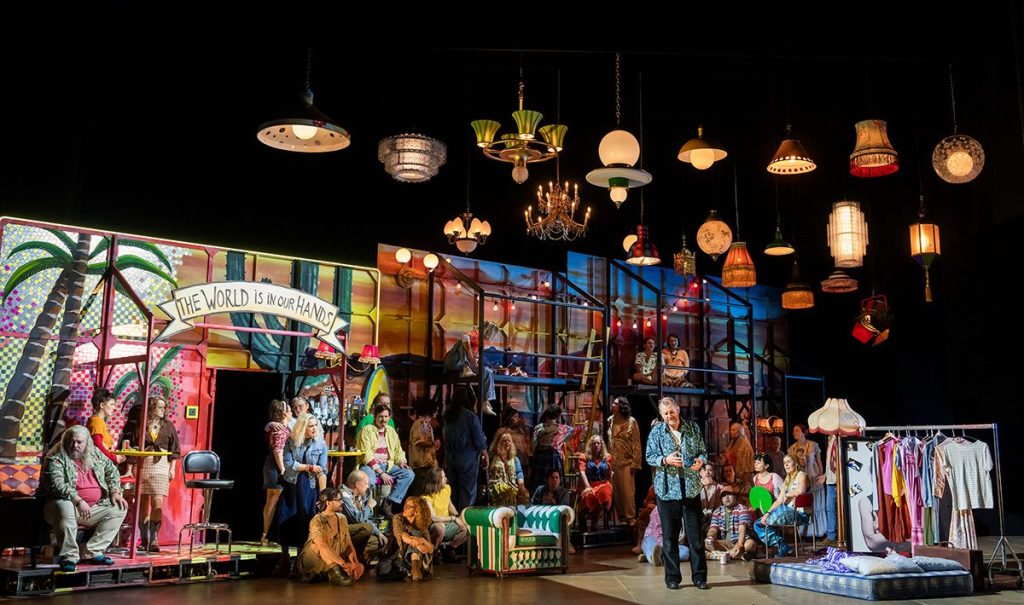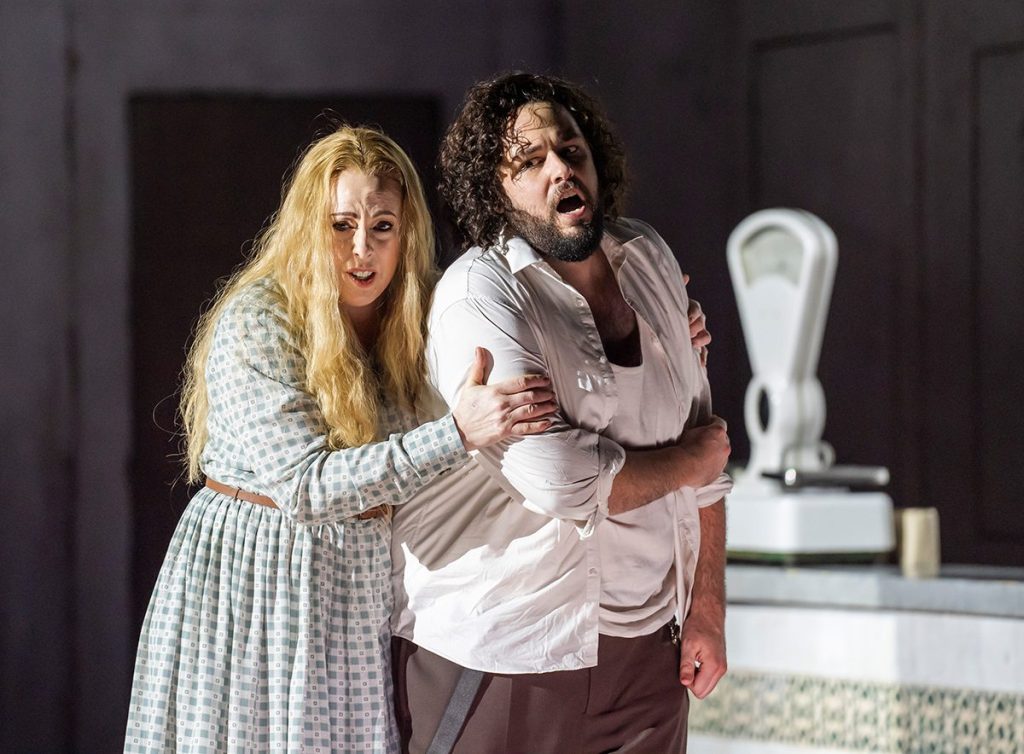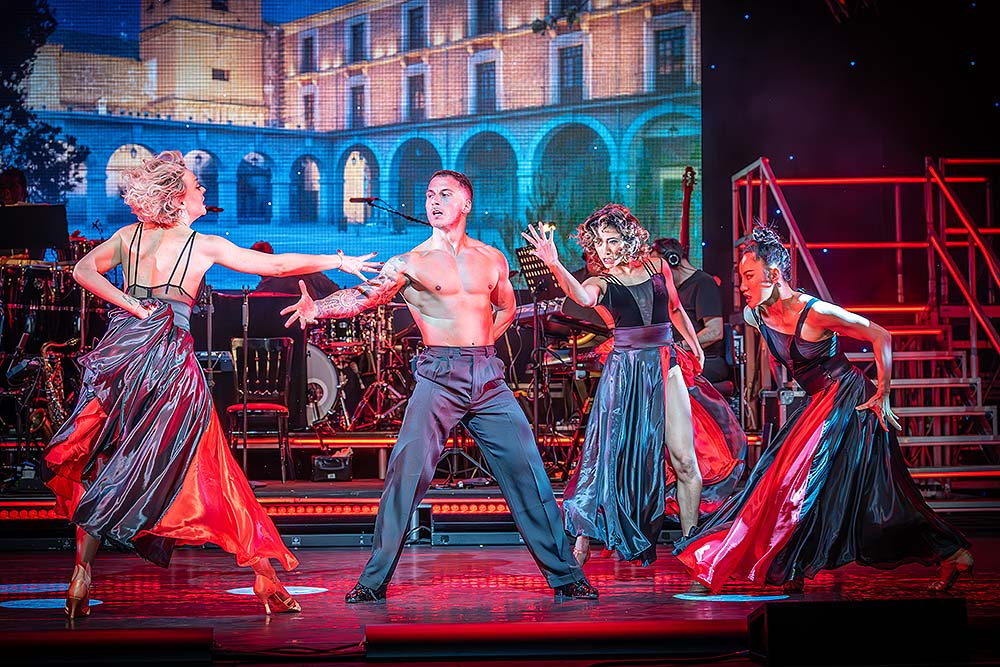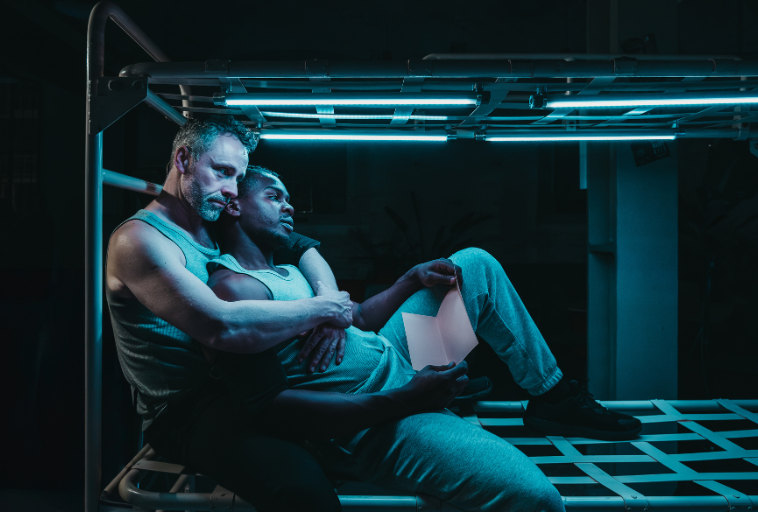★★★★☆
After reviewing and loving the world premiere of this new production at Opera North’s home, Leeds Grand Theatre, we could not miss the opportunity to send another writer to review it on our home turf.
With a story dating back to 1880, and its first appearance as an opera by Pietro Mascagni in 1890, Cavalleria rusticana explores a tragic tale of love and betrayal when Lola has an affair with Turiddu, an angry and lustful man who later “seduces”, or rapes, the religious Santuzza just before Easter Sunday. The crowds sing cheerfully as they attend their Easter mass and go shopping, meanwhile the affair continues and Santuzza hopes he will stay with her despite “stealing her
honour” as she is damned if he leaves her. His betrayal spells the end of the tumultuous affair as Santuzza tells Lola’s husband of their misdeeds and uses the only taxi of the village – a symbol of pride and wonder for the village – now the set for Turiddu’s downfall.
One particular stand-out of this performance was Santuzza (Giselle Allen), whose ingenious oscillations between passion, fear and anger brought to life so much stirring emotion both melodically and narratively. Her duet with the powerful and demanding vocals of Turiddu (Andres Presno) perfectly encapsulated this myriad of powerful emotions.
The set was simplistic yet occasionally troublesome for me as it split into three sections: Lola’s house, the church/town, and Lucia and Turiddu’s shop. At times, I struggled to differentiate the spaces or understand whether the characters were supposed to be able to
see each other as they wandered between sets. The Easter Christ symbolism was gorgeous but also felt a little off since they used Turiddu as the symbol of Christ, despite him being the complete opposite in values and morals.

Aleko originates from an 1827 poem named ‘The Gypsies’ and was later adapted into an opera by Sergei Rachmaninoff in 1982. Its story follows a similar theme, instead giving a different and more liberal perspective of polyamory and adultery from a community of “free people”. Aleko hears stories about affairs and becomes angry at the community’s lack of possessiveness and loyalty, stirring his wife Zemfirra into an affair that leads again to bloodshed and exile.
The set of this opera was much more exotic and vibrant, with a tiki bar-styled vacation hut, Hawaiian shirts, colourful dresses, and so on, reflecting the village’s relaxed lifestyle.
There were a few strange and intimidating dance moments, perhaps used to further reflect this freer style by breaking away from the operatic for a moment, but sometimes lasting a little longer than necessary.
I’d say I felt much more passionate about this tale, with Zemfira being such a cute and free individual, chasing love but suffering at the hands of her husband’s cruelty, losing both
her lover and her life.
Zemfira’s (Elin Pritchard) passionate, siren-like singing was so ethereal, haunting the audience with the tragedy of her death, alongside the deep and mournful tones of her father (Matthew Stiff).
Interestingly, however, Opera North’s double-bill also seems to connect the two tales, although a little tenuously. At several points in Aleko’s tale, he is haunted by visions of the past, including the suicidal figure of Lola, the anger of Santuzza. and the mourning of Lucia.
This left me with two questions… Is Aleko the aged Alfio that killed Turiddu in the first opera, seeing history repeat itself with his new wife (after all, both are played by the same talented singer, Robert Hayward)? Or are their appearances symbolic and metaphoric connections, showing the consequences of murder and the repetitive nature of these jealous rampages from different
perspectives? These questions never get answered, which at first left me perplexed, but on reflection, creates a unique, shocking and thought-provoking twist on two once separate operas.
Both operas starred gorgeous ensemble harmonies like no other, brilliant soloists, swelling yet intimidating orchestral moments, and stories that connected in unexpected yet evocative ways.
Cavalleria rusticana / Aleko tours the UK until March 22, playing at the Lowry (Lyric Theatre) on March 20 and 22.
The other touring opera in this season is Così fan tutte (Wolfgang Amadeus Mozart), which tours the UK until April 6, playing at the Lowry (Lyric Theatre) from March 21 to 23.
Photo: Cavalleria rusticana by © Tristram Kenton



